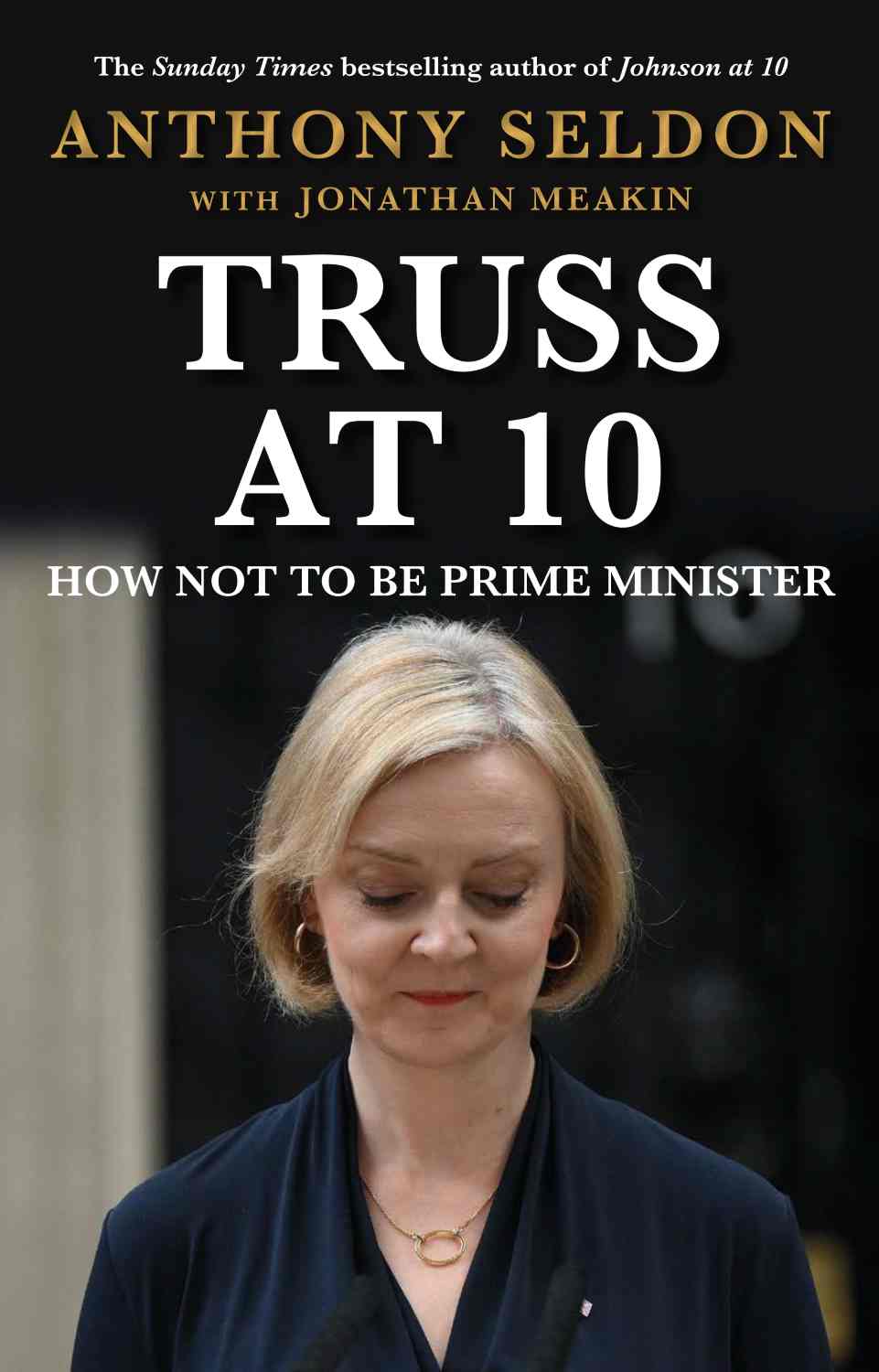'It should come with a trigger warning': Lord Black reviews Anthony Seldon's 'Truss at 10'
Edinburgh, 12 September 2022: Liz Truss at a service of prayer and reflection for Queen Elizabeth II one week before the state funeral | Image by: Associated Press / Alamy Stock Photo
5 min read
Written with swashbuckling historical perspective and panache, Anthony Seldon has produced an intimate account of an unparalleled British psychodrama
Exactly two years ago we were all witnessing the self-immolation of the Truss administration, which led to economic cataclysm and the electoral destruction of the Conservative Party.
Until now, the comparative competence of the Sunak government, the cleansing effect of a general election and the humdrum managerialism (and after what went before that is intended to be a compliment) of the Starmer administration had succeeded in pushing those terrible days safely to the dark recesses of the mind.
But – as in Jaws – just when you thought it was safe to go back into the water, along comes this gripping tome from Anthony Seldon with Jonathan Meakin. Charting in painstaking, carefully researched detail, and written with swashbuckling historical perspective and customary panache, it forces us painfully to relive the nightmare. It should come with a trigger warning.
An intimate and detailed account of an unparalleled “psychodrama”, it is most importantly a self-proclaimed and brilliant “meditation on power” which shows how and why governments fail.
From the start, Seldon is clear that “to dismiss Liz Truss as always destined to fail is too simplistic”. It need not have been that way if only she had learned from the past and listened. To guide us through the catastrophe, he sets out 10 tests of successful leadership at No 10 (and having chronicled so many prime ministers, there could be no one better to do it). Needless to say, Truss spectacularly fails them all – and the reasons become clear as the authors ruthlessly lay bare the deeply flawed personality traits that sank her administration. Policies and principles matter, but in politics character is just as important.
 Party conference, October 2022: The PM with her then-chancellor Kwasi Kwarteng | image by: PA Images / Alamy Stock Photo
Party conference, October 2022: The PM with her then-chancellor Kwasi Kwarteng | image by: PA Images / Alamy Stock Photo
Chief among her failings was that Truss had no grasp of history and therefore of statecraft – an essential quality in someone seeking to embark on rapid, profound change. According to her short-lived chancellor, Kwasi Kwarteng: “She had no sense of it at all or interest in it.” Her gut reaction in difficult discussions was to use President Reagan or Mrs Thatcher as a trump card, sublimely unaware of the totally different historical and political circumstances in which they operated.
This led her to “attempt something never before achieved” without any understanding of where the tide of history would sweep her. In particular she ignored the fundamental lesson bequeathed to the Tories by Sir Robert Peel: “Keep the party together, whatever the cost.”
Just as important was a wilful refusal ever to listen to advice – apart from a few Rasputin-style true believers who fuelled “self-reinforcing groupthink”, which meant that “confidence and daring led to arrogance and… hubris”. With almost monotonous regularity her answer to any sensible expert advice was to shout “no, no, no” – assuming that it was an attempt by the “deep state” to thwart her. “She knew best.” Seldon charts how – even though she had sacked the permanent secretary to the Treasury Sir Tom Scholar, the one man who might have saved her, and had sidelined the Office for Budget Responsibility – “she was explicitly warned of the risks of what she was doing. She has no one to blame but herself.”
The book forces us painfully to relive the nightmare
Equally damaging was Truss’ complete inability to read people and interpret them – a symptom of self-delusion. As her administration went down in flames, she had a car crash conversation with Graham (now Lord) Brady, in which he tried to tell her the game was up. She reported back ecstatically to her team that it was a “very good conversation” and “there was no immediate concern from members… The party has been brought back together [by the appointment of Jeremy Hunt].”
If you search hard, there are some crumbs of redemption. She handled the death of the Queen tolerably well (partly because it was the only time she listened to advice as it came from the Palace). When telling her staff about her resignation, she finally discovered some courtesy and said “thank you” to them – “the first time they had heard her say the words”. She also began, in a rare moment of perception, rightly to recognise that Johnson’s failed Brexit deal would have to be unwound – “we have to find some way back”. And of course, at the end she agreed – “to her great credit” – to a swift transfer of power to spare the Conservative Party the agony of another leadership contest. But they are morsels only.
 Even as the votes were being counted in South West Norfolk on the morning of 5 July, she would still “not accept blame or apologise”. It was all the fault of the mythical “deep state”. But, as Seldon concludes, “there was no co-ordinated ‘deep state’ attempt to unseat her and defeat her project”: Truss and Kwarteng alone were responsible for “kicking away the struts of the financial framework that... provided stability and predictability”.
Even as the votes were being counted in South West Norfolk on the morning of 5 July, she would still “not accept blame or apologise”. It was all the fault of the mythical “deep state”. But, as Seldon concludes, “there was no co-ordinated ‘deep state’ attempt to unseat her and defeat her project”: Truss and Kwarteng alone were responsible for “kicking away the struts of the financial framework that... provided stability and predictability”.
While depressing – how could it ever have happened? – this book is a compelling read. And it produces what its authors call a “gilt lining”. Any future prime minister – and this book should be essential reading for all those set on No 10 – will now understand the basic errors which broke all the “rules of good premiership” – and, we must hope, avoid making the same mistakes again. The history Truss snubbed has the last laugh.
Lord Black of Brentwood is a Conservative peer
Truss at 10: How Not to be Prime Minister
By: Anthony Seldon with Jonathan Meakin
Publisher: Atlantic Books
